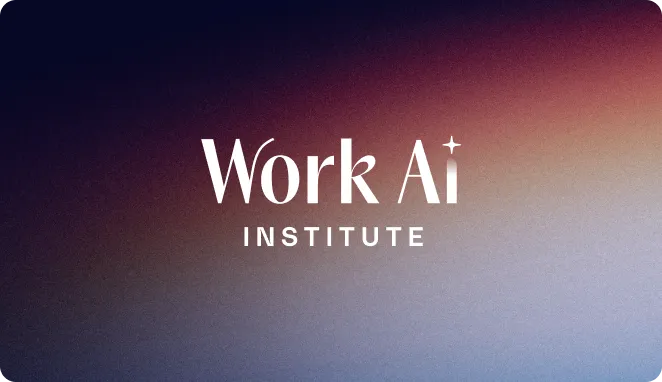- AI-powered knowledge management empowers retail corporate teams by providing personalized, real-time access to relevant information, enabling faster decision-making, better alignment across departments, and reduced time spent searching for answers.
- Traditional knowledge systems in retail are hindered by information silos, outdated content, and poor search experiences, making it challenging for corporate teams to find trustworthy and actionable knowledge when they need it most.
- Platforms like Glean transform retail operations by integrating knowledge across disconnected systems, streamlining onboarding, facilitating clear collaboration, and leveraging AI agents to automate workflows, ultimately accelerating productivity and operational agility.
Behind every great customer experience is a corporate team making thousands of decisions about pricing, promotions, hiring, logistics, and more. Whether it’s merchandising teams adjusting assortments, marketing launching campaigns, or supply chain and IT coordinating fulfillment, these behind-the-scenes roles keep retail operations running. But with shifting demand, growing complexity, and too many disconnected systems, those decisions are getting harder to make.
AI-powered knowledge management helps change that. By giving employees instant access to the right information — tailored to their role, task, and tools — retailers can move faster, stay aligned, and reduce time spent searching or second-guessing.
This blog explores how knowledge management, powered by AI, helps corporate teams work smarter. You’ll learn how Glean supports onboarding, decision-making, and operational efficiency across departments, and why knowledge access is becoming the new productivity multiplier in modern retail.
What is retail knowledge management?
Retail knowledge management is the process of capturing, organizing, and distributing company knowledge so that employees can find what they need, when they need it. This includes everything from process documentation and training materials to customer insights, campaign plans, and product information.
For corporate teams, it’s what keeps work moving. Whether someone’s planning a seasonal launch, analyzing performance data, or onboarding a new hire, knowledge management ensures every employee — no matter their role — has access to accurate, up-to-date information that supports faster, more consistent execution.
The problem? Most legacy systems weren’t built for how people actually work. Traditional intranets and static knowledge bases require constant maintenance and force employees to dig through folders, drives, and email threads just to find the basics. AI changes that.
Modern knowledge platforms powered by AI go beyond organizing documents. They understand intent, personalize results, and surface relevant answers in real time. Instead of browsing through files or relying on institutional memory, employees — from inventory planners to marketers — can ask a question in natural language and get a trusted, role-specific answer in seconds.
Why knowledge management matters for corporate teams
Corporate teams are the engine behind innovation, execution, and alignment. They shape strategy, support stores, and bring campaigns to life — but when information is siloed or outdated, progress slows. Delays stack up. And teams miss opportunities to move faster or make better decisions.
This is why knowledge management is becoming a strategic priority. According to Gartner, 91% of retail IT leaders are prioritizing AI as the top technology to implement by 2026. . And in Salesforce’s 2025 Connected Shoppers Report, 75% of retailers say AI agents will be essential by 2026. That momentum reflects a growing realization: to meet the demands of a modern retail operation, corporate teams need fast, frictionless access to the knowledge that powers their work.
With the right system in place, knowledge management can:
- Speed up onboarding and training. New employees get up to speed faster when they can find answers on their own — whether that’s campaign playbooks, approval workflows, or vendor documentation.
- Keep cross-functional teams aligned. When everyone is working from a single source of truth, collaboration becomes faster and more consistent — whether it’s merchandising finalizing pricing updates, marketing rolling out campaigns, or IT and supply chain working through logistics and fulfillment.
- Enable faster, more confident decisions. Teams can act on real-time insights, past performance, and historical context without tracking down files or pinging colleagues for background.
- Reduce repeat questions and unnecessary rework. Employees spend less time hunting through drives or duplicating work and more time focusing on high-impact tasks.
In a fast-moving industry, knowledge isn’t just a resource. It’s an accelerant. And the teams that can find, understand, and apply it quickly are the ones best positioned to lead.
Challenges of implementing retail knowledge management
The value of knowledge management is clear, but putting it into practice isn’t always easy. Retail organizations, especially at the corporate level, face a unique set of hurdles when it comes to implementation.
Siloed information across disconnected systems: Retailers rely on a wide range of tools to run their business — Google Drive, SharePoint, Slack, Zendesk, Salesforce, and many more. As a result, critical knowledge like campaign plans, supplier contracts, and operational playbooks often gets scattered, making it hard for employees to find what they need.
Constant change across products, policies, and teams: With frequent updates to promotions, inventory, workflows, and teams, documentation can quickly become outdated. Employees struggle to trust whether the information they’ve found is current or complete.
One-size-fits-all search results: Legacy systems typically serve up the same search results to everyone, regardless of their role, team, or access level. That leads to irrelevant results, lost time, and confusion — especially for employees who aren’t sure what to search for in the first place.
Hesitation to adopt new tools: Corporate teams may be hesitant to adopt new platforms, particularly if they feel disconnected from existing workflows or require steep learning curves. Without seamless integration, even the best system can go unused.
To overcome these challenges, retailers need more than a static knowledge base. They need a platform that makes information easy to find, secure by default, and personalized to the task at hand without disrupting the way teams already work.
How Glean helps retail corporate teams work smarter
Retail leaders are doubling down on data-driven, cloud-first cultures — and for good reason. From pricing strategy and campaign planning to vendor management and store operations, every team depends on fast, accurate information to keep pace. But that information is often scattered, out of date, or trapped in tools that don’t talk to each other.
Glean changes that. Glean connects to all of a retailer’s knowledge sources — across apps, teams, and formats — and makes them instantly accessible through natural language. Built with enterprise-grade security and designed for ease of use, Glean helps corporate teams unlock knowledge at scale, turning information into action across every department.
Here’s how Glean delivers real impact for corporate retail teams:
Instant answers, personalized to every employee
Not every team needs the same information. A marketer looking for “Q3 performance” doesn’t need the same results as a merchandiser running a pricing refresh. Glean understands this context — surfacing answers based on each employee’s role, department, and access level. The result is less noise, more relevance, and faster decisions across the board.
Faster onboarding and training
New employees in retail often face a steep learning curve — especially when company knowledge is scattered across disconnected tools. Glean simplifies the ramp-up process by giving employees a single place to find the answers they need. Whether it’s locating campaign workflows, brand guidelines, or process documentation, corporate teams can self-serve from day one. While the most dramatic onboarding gains have come from seasonal associate roles, corporate teams benefit in similar ways: less back-and-forth, fewer repeat questions, and more time spent on meaningful work.
Smarter merchandising and marketing execution
From pricing shifts to new product launches, merchandising and marketing teams work best when they’re aligned. Glean makes that alignment easy — bringing together past campaign briefs, vendor agreements, sales data, and creative assets in one place. Teams can find what they need, when they need it, without digging through folders or pinging analysts for help.
Retailers are already turning to AI to identify and act on market opportunities faster than ever. Glean gives teams the tools to do just that. When insights are at your fingertips, go-to-market decisions happen faster — and with more confidence.
Clearer collaboration for operations and IT
Operations, finance, IT, and supply chain teams rely on documentation and process consistency — but that’s hard to maintain across regions and systems. From inventory planning guides and logistics SOPs to vendor contracts and policy updates, Glean brings everything into one searchable experience. Instead of chasing down owners or reconciling versions, teams can work with clarity and speed.
AI agents to support everyday workflows
With Glean, retailers can build custom AI agents that help automate repetitive tasks and standardize best practices. These agents can walk employees through processes like new store setup, generate onboarding checklists tailored to each role, or summarize team meetings into shareable updates. By handling the busywork, Glean frees up teams to focus on the work that drives growth.
The clarity corporate teams have been missing
Retail’s pace isn’t slowing down — and corporate teams are being asked to move faster, collaborate better, and make decisions with less friction. But they can’t do that if knowledge is hard to find or locked away in silos.
AI-powered knowledge management helps break those barriers. It brings clarity to complexity, making it easier for employees — whether they’re in IT, merchandising, or inventory planning — to find what they need, understand the bigger picture, and take action without delay. For retailers building toward smarter, more resilient operations, that shift isn’t just helpful — it’s transformative.
Ready to see Glean in action? Watch our on-demand webinar with Etsy to discover how Glean helps retailers power smarter, more efficient work across corporate teams. Or, if you're ready to do the same, request a demo to see how Glean can support your teams, too.









